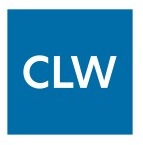
CSSW London Waterproofing, also known as CLW, is a leading consultancy specialising in structural waterproofing services. We are industry experts in designing and advising on waterproofing for basements and other buried structures.
Why CLW
-
Independence: We are fully independent, with no ties to waterproofing suppliers or contractors. This allows us to provide unbiased advice focused solely on our client's needs.
-
Expertise: We offer a range of services including robust waterproofing design, value engineering, advice on insurance and guarantees, defect assessment, and expert witness services for dispute resolution.
-
Certifications and Accreditations: We hold a broad range of specialist certifications such as SSiP Approved Designers, Cyber Essentials Plus, CHAS Elite Approved and members of the Property Care Association.
-
Professional Team: Our expert team includes experienced professionals like Ben Hickman, Johnny Etkind, Adam Leatherdale, and Ranjith Radhakrishnan, all of whom hold relevant qualifications in structural waterproofing.
-
Client Base: We are proud to support prominent organisations such as the City of London, Avison Young, NHBC, and St George, along with collaborations with architects and engineers like Eric Parry Architects and Kohn Pederson Fox.
-
Established business: CWL Limited was incorporated on May 16, 2016, and is registered as a private limited company with its office in Bedford, England
WE'RE HIRING!!

What are the main benefits of hiring a specialist contractor for a specific project?
A specialist water proofing contractor is a professional who possesses specialised skills, knowledge, and expertise in identifying, treating, and preventing dampness in buildings.
Specialist contractors bring in-depth knowledge and niche skills to handle specific aspects of a project to provide valuable insights that may not be available in-house, especially for one-off projects or implementing new technologies.
Their specialised skills and experience naturally lead to quicker project completion. Often achieving cost savings while ensuring high-quality results for specific aspects of their projects. Getting it right from design and installation stage instead of starting again and paying for the whole project again.
What are common waterproofing methods?:
These waterproofing methods help protect high-rise buildings from water ingress, ensuring their longevity and structural integrity.
-
Liquid-Applied Membranes: versatile and adaptable to complex surfaces and intricate architectural details, forming a seamless, continuous layer
-
Sheet Membranes: Pre-formed sheets that provide uniform thickness & strength, suitable for areas exposed to high moisture levels like roofs & basements
-
Cementitious Waterproofing: Commonly used in internal wet areas such as bathrooms and kitchens, providing a rigid and durable coating.
-
Thermoplastic Polyolefin (TPO) and Ethylene Propylene Diene Monomer (EPDM) Membranes: Highly recommended for high-rise roofs due to their durability and resistance to weathering and UV light.
-
Integrated Waterproofing Systems: These combine various methods such as membranes, coatings, and sealants to create a multi-layer defence against water damage.
-
Polyurethane Liquid Membrane Waterproofing: Used in flat roof areas and those exposed to weathering, offering high flexibility.
-
Bituminous Membrane Waterproofing: Self-adhesive and suitable for low-sloped roofs, available in covered and exposed types.
-
Elastomeric Coatings: Weather-resistant layers that can stretch and accommodate building movement.
